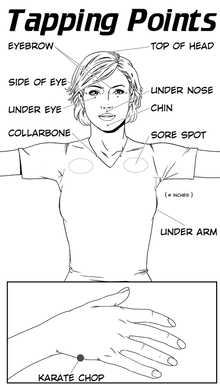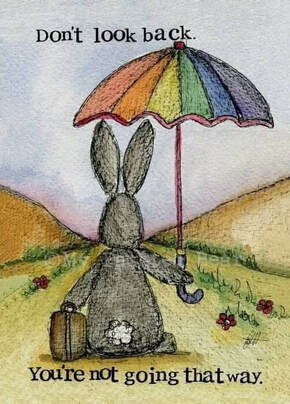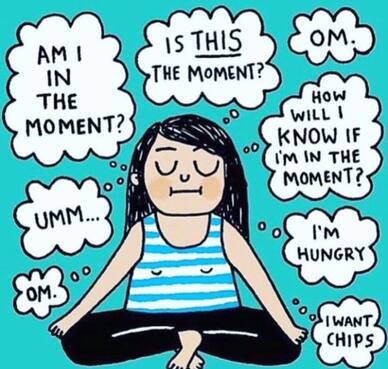|
From the moment I first stumbled across Emotional Freedom Techniques (also known as EFT or 'Tapping") back in 2010 I was hooked. To this day I remain super passionate about it and continue to be amazed at the life-changing results that are achieved. So, what is EFT? EFT or Emotional Freedom Techniques (also known as Tapping) is an evidenced based technique that involves lightly tapping with your fingertips on specific acupressure points (see diagram below) on the face, upper body and side of the hand, while focusing on a negative issue, memory or feeling. Tapping in this way sends a calming signal to the brain which in turn helps to calm the body and nervous system. The result is you can think about the same issue or memory and it will no longer feel stressful and no longer creates the same stress responses in the body. Although still considered relatively new, EFT has been around for more than 40 years and researched for more than 20 years. “EFT has been researched in more than 10 countries, by more than 60 investigators, whose results have been published in more than 20 different peer-reviewed journals”. Peta Stapleton, Psychologist and Researcher, Bond University Effectiveness has been established in addressing a wide range of issues including phobias, anxiety, depression, post-traumatic stress disorder, chronic pain, food cravings and weight management. EFT has been clinically proven to positively affect the body in relation to blood pressure and brain activity and to lower the stress hormone cortisol in the body. EFT can assist people from all walks of life and can be used with children as young as 3-4 years of age. So how does it work? Unprocessed stressful emotions are at the core of many physical and psychological symptoms. Unfortunately, we are often taught to resist and push down these painful emotions instead of feeling or expressing them. And in situations of trauma there often isn’t the time or opportunity or often the knowledge to process what has occurred. At these times the body actively pushes down emotions so that you can get on with everything you need to do in your life. However, these unprocessed emotions stay in the body until there is the opportunity to process them. It doesn't matter if the stressful event occurred last week or twenty years ago - if the emotions weren't processed, there remains an imprint of those emotions in the body. When you provide the body with a way to express and release these emotions the body starts feels calmer and is able to function more effectively. Enter EFT. EFT has a positive effect on the body’s stress response (commonly known as the fight/flight response) and actually changes how your brain responds to stressful issues or events. It works both in relation to current issues as well as issues that have happened in the past. The basic tapping process involves focusing on a stressful experience or issue while using the fingertips to tap on specific acupressure points. Tapping in this way sends a calming signal to the brain, letting it know it is safe. So even though you have this stressful issue or feeling, your brain begins to stop seeing it as such a threat. This enables the body to to relax and you can think about the issue or event without having the same stress response. The most common feedback I hear people say at the end of EFT sessions are they feel calmer and more relaxed, the issue they came in with doesn’t feel like so much of an issue anymore, and if they came to the appointment with questions about their life, or areas of confusion, they generally feel clearer about what has happened and what to do next. How long does it take to work? This will depend on the issues being addressed. Some issues can be resolved in one or two sessions. It has been my experience that most people notice a significant difference in how they feel within the first appointment. There is often an emotional release as the body starts to relax. However, if there are layers related to multiple stressful events and/or traumas it will take longer to address. Care needs to be taken in addressing trauma that the person does not become overwhelmed. Fortunately, Clinical EFT provides many avenues to avoid this. A suitably trained therapist will understand how to approach trauma in a way that is safe and supportive. Should i try EFT on my own or with a Practitioner? EFT is an amazing self-help tool that can be used in addressing many day-to-day stressors once you understand the basic tapping technique. There are however times when it is beneficial and advisable to engage the help of a suitably trained therapist or counsellor. Your brain is incredibly effective at keeping you safe. It is what has kept the human species alive and evolving for so long. So, if you go delving into painful memories or experiences, chances are your brain will do its utmost to distract you away from it. And sometimes for good reason! Going back to traumatic memories can be overwhelming. For this reason, when it comes to addressing traumatic memories, that you know may feel overwhelming, being supported by a suitably trained trauma-informed EFT Practitioner can help you navigate those painful feelings and emotions. Additionally, trained EFT Practitioners will have a range of different ways to approach an issue or concern beyond the basic tapping process. If you are interested in finding out more about the science and research behind EFT, click on the links below: If any of the above information has been helpful please consider passing it onto someone else who may benefit. Until next time, Karen Northey
Counsellor (Trauma informed) EFT Practitioner (Emotional Freedom Techniques) Social Worker Website: www.connexionscounselling.com Email: [email protected]
0 Comments
Discombobulation...anyone else feeling this right now?! I have always loved this word, but not the feeling of it. Kind of like everything has been turned on its head and not knowing which way is up! How do you minimise this when things feel out of your control? For a start - notice what you can control - your thoughts and your actions. For example, the amount of time you spend on social media and watching the news. While we all want to stay up to date, the media and social media can really fuel up our 'lizard brain' - our fear brain. This part of our brain feeds on fear like fuel to a fire. This raises cortisol levels (our stress hormones), anxiety and feeling out of control. It also gets us stuck in our heads. And before you know it you are feeling scattered and overwhelmed. So what can you do instead? 1. Limit your time on social media to a certain time or amount of time a day. 2. Find productive and positive things to do particularly if you have a lot of time to yourself at the moment. Is there something you have always wanted to learn but never had time for? You can learn pretty much anything on YouTube these days. For free! Have you always wanted to learn a language? Learn how to paint or draw? Dance? Do yoga? Meditate? Make or repair something? Play the guitar? Is there a new work skill you need to develop or steps you want to take to develop your own business. You can learn all of these things online. What would you love to know more about or research? 3. Take the time to journal and write out the thoughts and fears going through your mind. Thoughts are easier to manage and make sense of when they are out of your head and on paper. 4. Phone and check on friends or relatives and see how they are going. Focusing on the well-being of others is a great way to get out of the cycle of focusing on your own worries and concerns. 5. Get outside! This is so important right now. With all the messages about isolating ourselves some are becoming more fearful of even going outside.And you don't need to be around others to do this. Go for a walk. Go outside and stand in the sun (in moderation). Do some gardening. Whatever makes you feel like you have that connection with nature and the outside world. Now it's your turn - what other things can you think of? Be creative. You know yourself better than anyone so only you can work out what works best for you. Find what works for you and keep doing it. And remember - be kind to yourself. You are doing the best you can. Karen Northey
Counsellor (Trauma informed) EFT Practitioner Social Worker Website: www.connexionscounselling.com Email: [email protected] If you found this helpful please consider passing it on to someone else who may benefit. If you have any questions you can contact me on 0405 990 765 or email me at [email protected]. If you are ready to make some positive changes in your life take the next step and book an appointment today. Please note: Although face to face appointments are currently reduced in line with current Australian public health requirements, a reminder that Connexions Counselling is an established online counselling provider. Please contact me if you would like to discuss an online appointment. Do you feel like you haven’t made the right choices for yourself or others in the past? Do you wish you could go back and do things differently? Is the fear of making a wrong decision stopping you from moving forward? It is normal to reflect on how things were or might have been. That is often how we change the course of our lives in moving forward. It informs how we want to do things differently. But when you are caught up in a feeling of regret or fear of making another ‘wrong’ choice it can stall you in moving forward. As well as reflecting on the things you wish you could have done differently, are you able to recognise the good choices you made at different times in your life? I’m sure there are many times you made decisions that led to positive outcomes. Unfortunately, instead of cherishing how far we’ve come we tend to focus on what we could have done better. At these times it can be useful to think about actions we have taken that led to good or even fantastic outcomes! The reality is that every day we need to make choices. Some of them might feel better than others but we are always making choices based on where we are at right now. We are all doing the best we can do with the resources we have available to us right now. If you look back and wish you had done things differently, remember you were a different person at that time. You were younger for a start. Which means you likely didn’t know as much as you do now. And your available resources will continue to change over time. You will get different information and new ideas. You will be exposed to different situations that create new perspectives and different people will show up in your life. This creates increased capacity to do things differently to what you did one week ago, one month ago, three years ago and so on. If you are struggling to make certain decisions, then take steps to expand your resources. Learn new information. Meet new people. Take courses. Get support from a counsellor or coach to sound out and explore your options. Get to know people you wouldn’t normally mix with and gain different ideas and perspectives. Most of all be kind to yourself. You are doing the best you can. Karen Northey
Counsellor (Trauma informed) EFT Practitioner Social Worker Website: www.connexionscounselling.com Email: [email protected] If any of the above information has been helpful please consider passing it onto someone else who may benefit. If you have any questions you can contact me on 0405 990 765 or email me at [email protected]. If you are ready to make some positive changes in your life take the next step and book in for an appointment today. In her book Thank and Grow Rich, Pam Grout tells a story about taking surfing lessons while on holiday. During the lesson the instructor tells her repeatedly to ‘focus on the beach’ (as opposed to responding to her concerns about ending up on the rocks), because, he said, the surfboard will always head towards where you are looking so if you are focused on the rocks that’s undoubtedly where you will end up! Grout goes on to talk about how she has applied this lesson to her daily life and the goals she is wanting to achieve. When she focuses on the beach (aka - where she wants to get to and the benefits of getting there) she ends up with a more positive state of mind and generally much better outcomes. So what do these thoughts tend to look like in relation to goals or things you might be considering changing? The Rocks You might end up thinking things like:
Or the Beach
As you read through the different statements above, notice how they make you feel and which ones make you feel better? The ones listed for the rocks, or the beach? Moving forward As you look to the year ahead and the changes you would like to create in your life, keep thinking about how you can frame it so you are focused on what you want and where you want to get to. At the very least you get to spend time thinking about things that make you feel great! Karen Northey
Counsellor (Trauma informed) EFT Practitioner Social Worker Website: www.connexionscounselling.com Email: [email protected] Did you find this useful? If you know someone else who may benefit from this post then please pass it on. Want to create more positive change in your life? Contact me today about arranging a session. Do you feel caught up in a vicious cycle of overthinking and worrying? Do you frequently get stuck in your thoughts? Trying to think through every possibility of what could go wrong, what could happen, what you could do to change things and make something (or someone!) be different? Lying awake for hours at night worrying or thinking through events of the past or future? Meanwhile you have lost moments, days or weeks of time as you are caught up in what is going on in your head. Overthinking and worrying is a protective mechanism. Something on some level doesn't feel safe. You may have been triggered by something that happened or something someone said or did in your past or present. And before you know it your mind is off and racing. And because our thoughts create our emotions, we then end up in tug of war between our thoughts and feelings. You need your thoughts. They are highly functional when applied to tasks like problem solving, planning and keeping us out of genuine danger. However, when misdirected your thoughts can become your worst enemy. Paradoxically, by reducing the thoughts and creating space in your mind you have a much better chance of arriving at positive and workable solutions. If you keep holding on tightly to your thoughts they will continue to control and limit you. Your thoughts go round and round and you get mired and stuck and it drains your energy. You may notice your shoulders feel like they are up around your ears and your whole body feels tense, wired and tired. Notice what is going on in your mind. How are your thoughts showing up right now? Are they feeling stuck and repetitive. Are they racing? Do they feel stressful? Are all these thoughts helping you or are they stopping you from taking action? Take a moment to draw your attention away from what is going on in your head and notice what is going on in your body. Pay attention to your breathing. Is your breathing shallow and light in your chest? Or are you breathing deeply into your belly? Or are you actually holding your breath (yes you would be amazed how much this happens!). Bring awareness to what is going on in the rest of your body. Notice areas of tension or tightness. How do your shoulders feel? Your head? Your stomach? These are common areas to hold stress. How does it feel if you breathe into those areas of tension and allow yourself to 'let go'. Notice if anything changes. Notice your body shift and change as you relax. How does it feel compared to before you started the exercise? Has this created space in your mind? How does that feel? Think about what you might be able to do differently to allow yourself to notice what is going on in your body throughout the day. Like anything new it takes practice. What reminders can you give yourself? Maybe set a timer on your phone, put a note in your diary or calendar or place a post-it-note somewhere that you will see it regularly each day. Everyone is different so pick something that works for you. Notice the changes that occur as you focus your attention inward on a more regular basis. Take care of you. Karen Northey Counsellor / Trauma Therapist EFT Practitioner Social Worker Website: www.connexionscounselling.com Email: [email protected] Did you find this useful? If you know someone else who may benefit from this post then please pass it on. Want to create more positive change in your life? Contact me about arranging a session. Sometimes in life we might have a vague notion of what we want but are unable to move forward. We don’t know why. It’s just there. A concept of something greater that we can’t quite reach. And maybe around us there are things happening that create discomfort that make us want to move forward even more. But still we remain stuck. Sound familiar? Bills piling up, relationship difficulties, or no relationship. Health issues. Fights. Drama. All of these are signs that something is off. Not quite right. Out of sync. And while it’s not comfortable we might paradoxically find comfort in the chaos because it feels familiar. And so we hang onto this familiarity and can’t move forward. Because the discomfort feels safer than moving into the complete unknown. How do you address this? Lean into the discomfort. Lean into the chaos. That feeling of resistance. What does it feel like? Does it feel scary? Can you feel more the further you lean? Can you gain clarity about what it is all about? That feeling of not having enough money. The feeling of that relationship that is not working. The feeling of being unwell. That pain in your body. What is it trying to tell you? Sit in the midst of that chaos, that pain and just be. Ask yourself these questions:
This is all about moving forward into the unknown. The discomfort is what we yearn for in disguise. It is saying, ‘this is the way you need to go’. ‘This is what you need to address if you want to move forward’. The discomfort is showing you what you need to move in order to clear the way. If you don’t like they way you feel or your situation. If it feels repetitive, stuck and yuk and there is a yearning for something greater, then the way forward is through that discomfort to find the gem inside. What would it be like if you could let go and leant right into that without fear of falling? Be kind to yourself. Karen Northey
Counsellor / Trauma Therapist EFT Practitioner Social Worker Website: www.connexionscounselling.com Email: [email protected] Did you find this useful? If you know someone else who may benefit from this post then please pass it on. Fear of change is very common and for good reason. Our brains are hard-wired to keep us safe and making big changes, or sometimes even small changes, can trigger the brain’s self-defence mechanisms and create anxiety. Your brain will present any number of reasons why the change you are considering is a bad idea and why you should stay safe in your comfort zone. But focusing on the fear blocks your progress. And while change can be confronting (and sometimes downright scary!) it can also be positive and exciting and bring wonderful new experiences that you would not otherwise gain.
Our fears about change are often unconscious and it can take some digging to get to the underlying belief. Here are some steps you can take to gain clarity on what might be holding you back from making that change you have been considering. 1. Notice your thoughts. What are you telling yourself will happen if you make this change? How true are these thoughts? Are you focusing on the positive opportunities, or the worst possible outcome? Or perhaps somewhere in between? 2. What are your beliefs about change? The fear of change can be fueled by many different underlying beliefs such as 'I'm not good enough' or 'I don’t deserve success' or 'it's not safe to stand out'. What are your beliefs that may be getting in the road? Where did these beliefs come from? Have you had experiences in the past where change was stressful? Take a moment to think about that now. Acknowledge the learning and growth from that experience. What is the reality of that same thing happening again given what you have learnt? 3. Focus on what you want and how you want to feel, not on what you don’t want. If you keep focusing on what you don’t want then you will continue to get caught up in fear and worry. Instead choose to focus on what you want to happen. "One of the reasons people resist change is because they focus on what they have to give up instead of what they have to gain.” – John Assaraf If you aren’t sure what you want, then instead focus on how you want to feel. Take a minute to answer the following:
Take some time to notice how these feelings are different from how you feel now? What is sitting in that space between what you feel now and how you want to feel? Is it fear or something else? And if so what is it telling you? And what can you do today to feel more of the feelings that are important for you? It is our feelings that are our ultimate guide posts. It is feelings such as happiness, joy and fulfillment that are the ultimate reward. Many have made it to what they thought was their end goal only to find they don’t feel fulfilled. By focusing on the feelings you want rather than just the material goal you gain more meaningful outcomes. What can you do to feel happier, more joyful, fulfilled or satisfied? What are some small steps you can take now to move towards what you want or closer to how you want to feel? They don’t need to be dramatic steps, but the reward you receive from feeling good will help propel you forward as opposed to trying to push yourself through change. Wherever you are in your approach to change accept that it is ok! If you are someone that doesn’t cope well with change then take small steps. As you move forward you create comfort with what was previously uncomfortable. Move forward in the direction you want to go. Then check in. Does it feel right? If it feels right, then keep going! If it doesn’t feel right then reassess and change direction. “You don’t have to see the whole staircase, just take the first step.” – Martin Luther King It’s ok to be a beginner! Everyone has to start somewhere. Would you expect a baby to be able to run before they can walk? Be kind to yourself. Karen Northey Counsellor (Trauma informed) EFT Practitioner (Emotional Freedom Techniques) Social Worker Website: www.connexionscounselling.com Email: [email protected] I hope you have found these words helpful. If you know someone else who may benefit from this post please pass it on.  Photo by David Travis on Unsplash Maybe you've heard the term 'what you focus on expands' or 'what you appreciate, appreciates"? I'm going to run you through a little exercise to give you a better idea of how this works. Take a look around the room or area that you are currently in. Notice everything you can see that is the colour blue. Really focus on those objects so that you can try and remember them. Now close your eyes and (without looking around again!!) try and remember everything around you that is the colour red. How did you go? Generally we might find it difficult to recall the red objects because we were so focused on the blue ones. That's the mission we sent our brain on so that is what it delivered. Every day our brain is doing its best to provide information to us that we ask for either consciously or unconsciously. It is on a fact seeking mission to find things that support our beliefs. Things work great when the beliefs are positive. The brain goes on a search and confirm mission to verify all the positive things you believe. 'I am loveable'. 'I deserve wealth and abundance'. 'Life is easy'. 'I deserve to be successful'. etc etc. Do you believe all of these things? If so, then keep doing what you are doing! However if your beliefs tend to be more along the lines of 'I am unlovable', 'life is hard', 'life is unsafe', 'I have to work hard to make any money'. 'I'm not good enough' etc etc, then the brain, in its efficiency, goes looking for evidence to support these beliefs and so that is what you continue to notice in your life. Gratitude and the power of noticing More than likely you have heard about gratitude and the many reported benefits. But how does it work? Gratitude works by getting you to focus your attention on what is positive or working well in your life which brings it into your conscious awareness. The idea is that over time your brain starts to seek out more of what is working well and less of what is not working well and so you begin to feel better. Gratitude can and often does take some practice if it is something you aren't used to doing. It's a bit like a muscle that needs to be exercised regularly until it becomes a habit. If you have had a positive upbringing where your caregivers gave you experience in looking for the positives then this may come more easily than if you have come from a negative or traumatic background. But it is your choice about what you want to focus on and you can choose to change this at any time. This is not about trying to stay positive all the time as that can often end up causing more stress by trying to force yourself to think a certain way! Instead it is about developing the art of noticing what is working and going well in your life as often as you can - to the point it becomes something you do automatically. This might be as basic as being grateful for the breath in your body, your family or loved ones, the roof over your head etc. Or you might like to get really specific and be grateful for certain people or experiences or events in your life. The great thing about this practice is it really opens your mind to noticing the diversity of positives in your life that previously you may never have noticed. And once you set your mind on that mission to focus on the positives, and practice that intention, your brain will take up that mission and run with it without you having to think about it! How can you use this to your advantage? At any time you can choose what you want to focus on. Examine the stories you tell yourself. Sift through the ones that aren't working for you. What can you notice in your life that provides evidence that maybe this belief isn't always true. Start to make a list and commit to noticing more of what is going well in this and other areas of your life. Maybe place visual cues or reminders around your home or put a reminder on your phone about what you want to focus on. Spend a few minutes each day writing down all the different things that you are grateful for. The act of writing things down really helps bring things into your conscious awareness. See how many you can come up with! I would love to hear if you notice any changes after committing to this practice! Warm regards, Karen Northey Counsellor (Trauma informed) EFT Practitioner (Emotional Freedom Techniques) Social Worker Website: www.connexionscounselling.com Email: [email protected] I hope these words have been helpful. If you think someone you know may benefit please feel free to share my posts. If you have any questions, or you would like to find out more about my techniques or approach, please give me a call or send me an email.  One of the issues I work on most commonly with people is physical pain. This is usually long-term pain for which the person has not been able to find any lasting solution. As opposed to acute pain where there has been an obvious injury such as a broken limb from which the body is still actively recovering. Emotional release techniques, such as Emotional Freedom Techniques or ‘tapping’, can assist with aspects of pain by enabling you to release stressful thoughts, feelings and beliefs that may be contributing to the pain. Your body is then able to more easily relax and get on with doing its job because it is no longer being actively triggered by past painful events. In addition to the obvious physical symptoms of pain and common side effects such as sleep deprivation, fatigue and anxiety, there are many other lesser known factors that can increase feelings of stress related to pain. For example:
In my work with people with people with physical pain I have found there are often core underlying emotions of anger, guilt or shame. These emotions can be more difficult to address on your own as they are often more unpleasant to face. Our tendency is to try and ignore them or push them down in the hope they might just go away! Unfortunately, the more we try to ignore these feelings the more they tend to create stress in our body. It is quite normal behaviour to do this. Because the reality is who wants to feel more pain by looking at these unpleasant emotions! But you do have a choice. What can you do?
Would you like to make a positive change in your life? Why not book an appointment today. Online appointments available worldwide. Access appointments from the comfort and privacy of your own home. If you have any questions, or you would like to find out more about my techniques or approach, please give me a call or send me an email. No question is too big or small. Karen Northey Counsellor (Trauma informed) EFT Practitioner (Emotional Freedom Techniques) Social Worker Website: www.connexionscounselling.com Email: [email protected]  As was aptly expressed by a friend during his recent birthday speech (as he stood surrounded by family and friends), the way to good health is through our social connections - our relationships with others. But the value of our relationships can go so much deeper - if we choose to allow it. Relationships don't happen by accident. They are there to help us grow and show us where we need to grow. Because it's often through our discomforts that we learn the most. And the reality is relationships can sometimes be quite uncomfortable! Relationships can help us to see the unseen parts of ourselves. The parts we like to tuck away. The insecurities. The messes. The bits we've tried so hard to hide from ourselves. Unfortunately many see relationships as a way of fulfilling their every emotional need. Which is a sure fire way to a train wreck. Relationships aren't there to fulfill us. We need to do that for ourselves. How do we do this? By digging underneath the discomfort when it arises. Owning it as part of ourselves, not a discomfort created by this other person we have had the fortune to meet and be with and connect with. To be present with what is showing up. Instead of running away or pushing it aside. Owning what is going on. Owning our thoughts, our feelings, our actions not as a reflection of what we might think the other person has or hasn't done but as a way to shine light on our own agendas. Have faith in the process. Enjoy their company. Be faithful to your own needs. And above all let go of the need to be perfect in their eyes as you are the one that is needing to be comfortable with who you are. Be present to your own feelings of inadequacy as these are not rules but guideposts to what is possible IF you choose to accept you are enough and move forward down the path of inner wisdom and freedom from the fears that frequently govern our mind. Would you like to make a positive change in your life? Why not book an appointment today. If you have any questions, or you would like to find out more about my techniques or approach, please give me a call or send me an email. No question is too big or small. Warm regards Karen Northey Counsellor (Trauma informed) EFT Practitioner (Emotional Freedom Techniques) Social Worker Website: www.connexionscounselling.com Email: [email protected] Image courtesy of Helena Lopes on Unsplash Leave a comment: |











